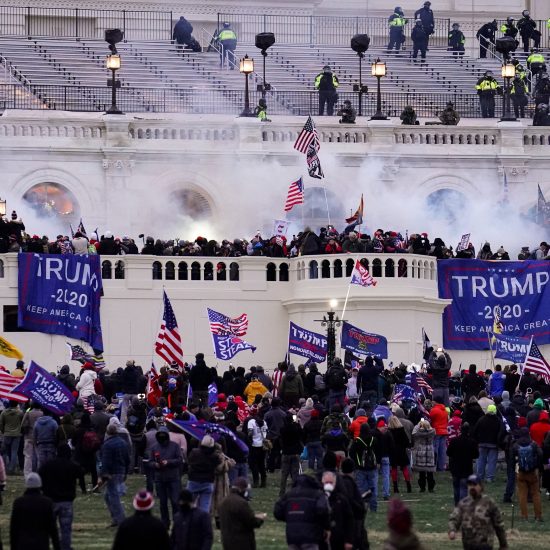WASHINGTON (ABP) — The father of a Marine killed in Iraq in 2006 filed a brief May 24 with the United States Supreme Court arguing that the free-speech rights of a Baptist church that picketed his son's funeral should not trump his family's right to mourn in private.
Lawyers for Albert Snyder of York, Pa., argued that a lower court erred in ruling that protests by Westboro Baptist Church in Topeka, Kan. — a small congregation notorious for showing up at military funerals carrying placards with messages like "Thank God for Dead Soldiers" — are absolutely protected by the First Amendment.
Snyder originally won a $10.9 million judgment — reduced later to $5 million — against the church in 2007 for intentional infliction of emotional distress, invasion of privacy by intrusion upon seclusion and conspiracy.
The 4th U.S. Circuit Court of Appeals in Richmond, Va., voided that judgment in 2009, however, finding that the controversial signs used to protest America's tolerance of homosexuality were not statements of fact but "rhetorical hyperbole" protected by the First Amendment.
Snyder argued in the Supreme Court brief that such a broad ruling "completely vitiates" state laws that allow private citizens to receive damages for emotional distress.
The Supreme Court accepted the case, Snyder v. Phelps, in March. It is expected to be one of the most-watched cases in the court's 2010-2011 term, testing the limits of free speech and the right to privacy.
Snyder's son, Lance Cpl. Matthew Snyder, was killed while in service in the Al Anbar province of Iraq on in March 2006. The family planned a private funeral service at St. John's Catholic Church in Westminster, Md.
On the day of the funeral, members of Westboro Baptist Church gathered near the church's main entrance in hopes of encountering the funeral procession, which was redirected to an alternate route to avoid them.
Snyder said in his brief that he was aware the protestors were coming and tried to keep focus on the memory of his son, but he caught a glimpse of the signs while leaving. Some of the signs carried anti-Catholic messages like "Priests Rape Boys" and "You're Going to Hell."
Snyder claims he was a captive audience, because he had only one opportunity to attend his son's funeral and could not avoid the church's speech without missing the funeral altogether.
He says he should not have been forced to prove the church's conduct could "reasonably be interpreted as stating actual facts" and barred from seeking remedy for intentional invasion of privacy. He says the lower-court ruling violated his own First Amendment rights to free exercise of religion and peaceable assembly.
Attorney generals from 17 states joined an amicus brief in support of the Snyders, claiming that if the Supreme Court upholds the Fourth Circuit decision, a federal "Respect for America's Fallen Heroes Act" and more than 40 similar state laws will be in jeopardy.
"This case is a test of whether we as a nation, with full legal justification, have the decency to provide the men and women of our military with the unwavering support they deserve whenever their rights are at risk," said Sean Summers, an attorney representing the Snyder family. "The conduct by the Westboro Baptist Church goes well beyond the bounds of basic human decency in a civilized nation. Intentionally inflicting emotional distress on others is not a constitutional right."
Westboro Baptist Church is an independent congregation not affiliated with any denomination. Most of its members are relatives of Pastor Fred Phelps, who started the congregation in 1955.
-30-
Bob Allen is senior writer for Associated Baptist Press.
Previous stories:
Supreme Court accepts case testing limits of free speech
Father of dead Marine to appeal decision favoring Phelps protesters
Court voids $5 million judgment against Westboro Baptist Church

